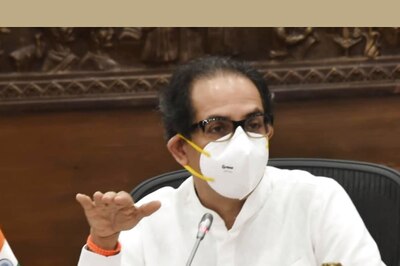
views
As the British Parliament declared a climate and environment emergency this week after a spirited campaign, mainly by civil society groups and students across Europe and America, cyclone Fani grounded many political leaders in India, forcing them to suspend their parliamentary election campaign for at least 48 hours.
Many of these leaders took to Twitter to inform their supporters about the suspension of their political rallies and urging people living along the coast to stay safe from the cyclone’s fury.
Meanwhile, about a dozen people lost their lives and 1.2 million had to be evacuated from their homes due to the cyclone.
Though an effective disaster management and a better early warning mechanism can minimise the loss of human lives and property, this is a matter of common knowledge that calamities like cyclones, floods and droughts are hitting India and other countries not only with an increased frequency but also with a higher degree of severity.
Several reports by researchers, environmental experts and scientists have established that extreme weather events such as frequent cyclones, prolonged drought, massive floods and unexpected hailstorms have a clear relation with rise in global temperature.
Last year in October, the Intergovernmental Panel on Climate Change (IPCC), in its special report had warned that if countries did not enhance the targets set under the Paris climate deal to control global warming, the consequences will be disastrous and extreme weather events will be more frequent and severe.
While one hopes that the declaration of climate emergency by the British Parliament will trigger a wave of climate actions across the globe, India, particularly, needs to sensitise and remind its policy-makers and politicians to engage with the phenomenon of climate change more seriously and consistently, because our country is going to be worst impacted by global warming.
The warning of disastrous consequences of climate change have appeared frequently and India needs to act not only at the domestic policy level, but also internationally with nuanced diplomatic skills.
In 2017, India was rated as 6th most vulnerable country to climate impacts in the world.
Last year, in January, there was a report by HSBC which said India was the most vulnerable of the 67 economies, even as World Bank said that we would lose trillions to climate change effects.
Last year, cyclonic storms Titli and Gaja hit India’s east and south-eastern coasts in quick succession claiming more than 100 lives together and rendering lakhs homeless within six weeks.
Similarly, cyclone Ockhi had hit the country’s west coast in 2017 killing more than 500 people in the deep sea.
Had Ockhi hit Kerala at the coast, the number of deaths and magnitude of disaster would have been much higher, as unlike in the east, people in western shoreline live very close to the sea.
Apart from cyclones, events like droughts and floods also impact the life and economy in a country like India.
The recent example is the unusual hailstorm in Punjab in January that destroyed crops of worth crores leaving farmers in distress.
A recent study in the American science journal, The Proceedings of National Academies of Sciences (PNAS), has found that the impact of climate change will make it difficult to narrow the gap of rich and poor nations.
The study done by examining 50 years of annual temperature data (between 1961 to 2010) with the GDP of 165 nations found that global warming decreases the GDP of poor nations, like India, while it helps the economy of some of the rich nations.
The PNAS study found that the effects of climate change induced by global warming have decreased the earnings of poor nations by 17 to 31%.
This research demonstrates that India’s GDP is 30% lower today, than it would have been had it not been affected by climate change.
The reasons behind these negative impacts are mainly due to decreased productivity and losses due to climate-induced disasters.
India, therefore, needs to be more vigilant and raise its voice domestically and internationally to combat the effects of climate change and its impacts.
One of the biggest concerns for India is the policies of rich nations like the United States and China that are clearly not in sync with proposals to protect the planet from global warming.
While China recently announced that it would finance coal power plants worth $36 billion across the world, the US continues to set up increased number of oil and gas pipe lines.
Although a vigilant group of activists and students is continuously protesting and building pressure against the policies of President Donald Trump, who had withdrawn from the Paris deal soon after taking reigns of the country, the latter is adamant about setting up more and more fossil fuel pipe lines.
Not surprisingly, the Global Energy Monitor has warned that more than 50% of world’s new gas and oil pipelines will come up in North America alone.
This means that more than 500 million tonnes of carbon dioxide would be sent to space in the next four to five decades.
Under such challenging circumstances when the rich and powerful continue to appropriate the carbon space, India would have to act urgently and with a higher degree of alacrity and diplomatic skills to ensure climate justice.
Experts tell us that the current rate of emission and lavish life style of rich nations have ensured that there is no carbon budget left for our younger generation if they want to live in the safe limits of global warming.
Although India has pledged ambitious targets to cut carbon emission within the country by setting up huge solar and wind parks and planting forests, the poor engagement of politicians in this area may limit the country’s endeavours in this direction.
Until these issues do not become a part of election campaigns and everyday agenda of our politics, there is little hope for any change to save the world for posterity.
















Comments
0 comment